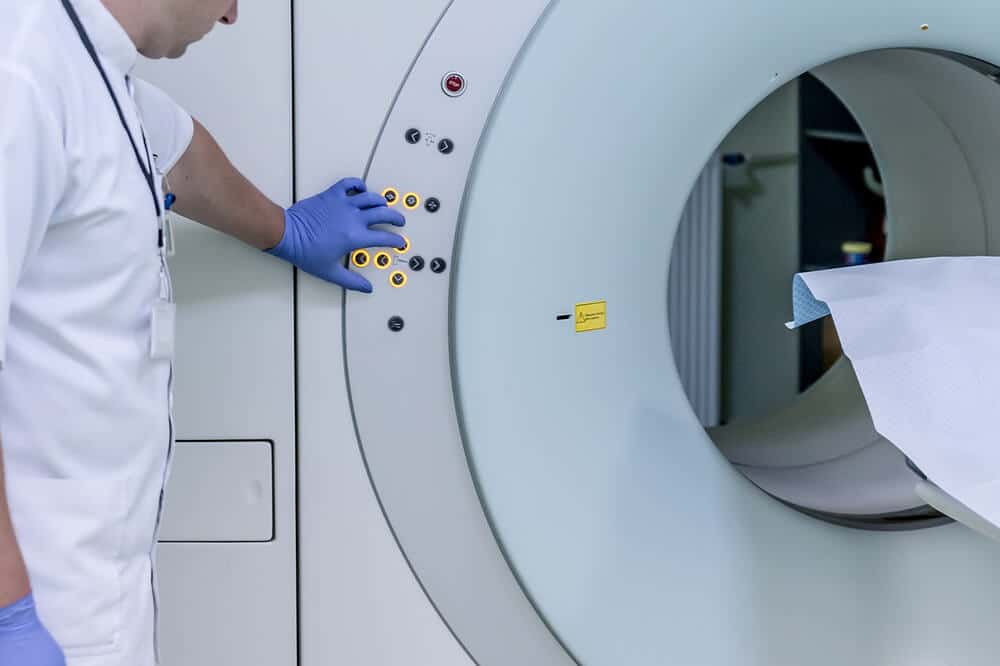The Pros and Cons of Getting an MRI After Filing a Car Accident Claim

When you have to seek medical treatment because a negligent driver caused an accident, there are a number of tests your doctor may want to run. You may be concerned about the associated costs, but it’s important to remember that you can seek compensation for your injuries. One of the most common diagnostic tests a physician will order is an MRI. There are pros and cons of getting an MRI after filing a car accident claim. It’s important to understand those advantages and disadvantages, so you can make the best decision for your health and wellbeing.
How an MRI Works
Whether an emergency room physician ordered an MRI or your primary care doctor schedules one for you, it’s important to understand how the test works and how it helps medical professionals diagnose conditions and injuries. Having a grasp on the process can also alleviate anxiety about having the test done.
MRIs are based on the idea that every cell in the body has a positive and negative pole, just like a magnet. If you put a person inside a machine with a magnet, all the normal cells in their body line up. The diseased cells, however, do not line up. After the magnet does its job, radio frequency waves generate an image of the body. An MRI primarily shows soft tissue and spinal discs – which is why it’s useful for car accident victims.
When a patient has an MRI done, they lay down inside a large tube. The machine scans their body. The best thing about this type of test is that it is non-invasive and completely painless. The downside, however, is that the scan can take a long time to complete. Patients have to remain completely motionless the entire time, or the results could be unusable. Because the tube is fairly small, it’s important to mention to the doctor or MRI technician about any issues with claustrophobia prior to the start of the test.
Diagnosing Car Accident Injuries with an MRI
As mentioned, MRIs are primarily used to diagnose soft tissue and spinal disc injuries. After your test, your doctor will explain the results to you and give you a copy of the report. There are common medical terms that are used to describe cervical and lumbar injuries. Understanding these terms is important for your recovery.
- Herniated. This occurs when the soft center of the spinal disc pushes through a crack in the outer casing. The irritated nerves can cause pain, numbness, or weakness.
- Bulging. Similar to a herniated disc, a building disc can cause pain, numbness, and weakness, but a smaller portion of the disc is affected.
- Protruding. When serious pressure is put on a bulging disc, it may be diagnosed as a protrusion.
- Extruding. An extruding disc often requires surgical repair because the nerve root can be pinched or compressed.
Depending on your age and health status prior to an automobile crash, it can be difficult to determine the cause of injuries. The insurance company or negligent party may try to claim that your injuries existed prior to the accident or that you’re suffering from degenerative discs. Fortunately, an MRI can prove causation after an accident.
An MRI can show that your injuries were caused directly by the accident you were in. When your diagnosis is used in conjunction with an accident report that discusses the angle and speed at which the crash happened, your case will be even stronger.
In addition to diagnosing your initial injuries from the crash, the MRI can show if pain or numbness from a herniated disc or other injury has radiated into another part of the body.
The Cost of an MRI
The biggest disadvantage when it comes to getting an MRI after filing a car accident claim is the cost. Without insurance or compensation for medical expenses, an MRI can cost $2,000 or more. You may be wondering if you can go without one, but it’s important to understand if the test will help more accurately diagnose your injury. Additionally, it’s a good idea to have it done if your doctor suspects you need surgery.
When your lawyer files the car accident claim on your behalf, they’ll be sure to take into consideration the cost of future medical care. So, if you need to have the MRI done after you’ve already filed the claim, it can still be covered by the compensation you receive for the crash.
If you decide to forgo diagnostic testing, like an MRI, against your doctor’s recommendations and it’s later discovered you have an injury that could have been treated, your chances of receiving full compensation for your medical expenses decreases.
At Pittman Roberts & Welsh, PLLC, we believe accident victims shouldn’t have to worry about finances. If you’ve suffered wrongfully because of a negligent driver, we’ll fight on your behalf to hold them accountable and help you recover. To learn more, contact us today.







